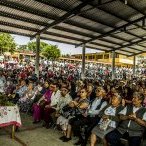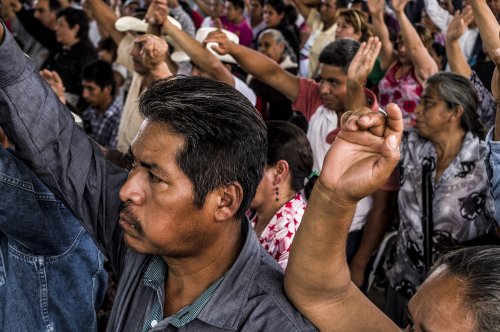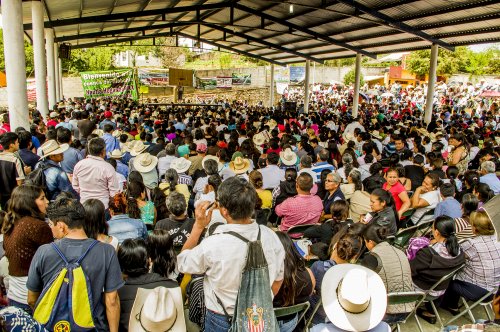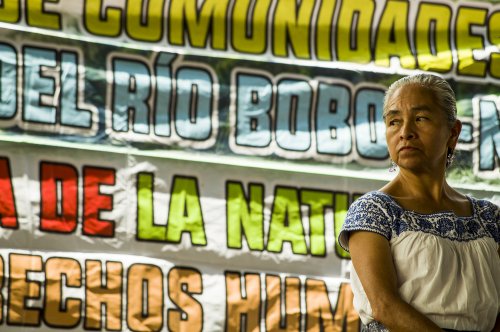English · Español

28 April 2016 | Interviews | Human rights | Extractive industries | Food Sovereignty
Over 6 thousand people from Sierra Norte, Puebla, Mexico, organize assemblies to stop megaprojects in their territories
Download: MP3 (1.8 Mb)
Last April 24, two important spaces of organization in defense of the territory took place in Sierra Norte, Puebla State, Mexico: an assembly of the Maseual de Atoluca people, Teziutlan municipality, and another one of the Totonaca indigenous people in defense of the Ajajalpan River in Altica community, in San Felipe Tepatlan.
Images: Otávio Rocha.
Mónica Montalvo, of Colectivo Hijos/as de la Tierra talked to Leonardo Durán, member of the Integral Territorial Use Committee of Cuetzalan, who said that over 6000 people participated in both events, and this has to do with the interest in resisting "extractive projects that people try to impose here, against which we´ve been fighting for over 4 years. And the scale of these assemblies responds to the scale of these death projects".

Approximately 160 hectares are being threatened by "over 15 hydroelectric projects in the territory and then also by hydrocarbon extraction projects", said Duran.
Based on the assemblies of the Maseual de Atoluca people, the communities are implementing strategies such as "demanding protection appeals; issuing resolutions addressed to the Mexican Environment Secretariat to avoid the passing of hydroelectric projects; pushing local municipalities to declare the territories "free from mining and hydroelectric dams".


It is worth remembering that in 2013, Enrique Peña Nieto´s administration passed an energy reform, that in addition to opening the private market to the energy sector of the country, it weakened the scarce participation and decision-making mechanisms of communities in terms of the advance and establishment of energy projects in their territories.
Meanwhile, the Totonaca people in San Felipe Tepatlan continues to be organized against a hydroelectric project on the Ajajalpan River. This project is trying to advance "with preliminary works based on the use of violence, criminal suits and harassment, even with firearms".
Despite the difficulties, Duran stated that during the past 4 years, the communities have managed to stop several projects "with legal actions, but especially with active mobilizations in the territory itself".

Imagen: Otávio Rocha







